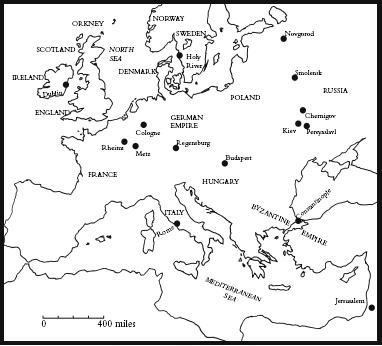Harold


AROLD
The Last Anglo-Saxon King
To My Mother and Father
H
AROLD
The Last Anglo-Saxon King
I
AN
W. W
ALKER

First published in 1997
This edition published in 2010
The History Press
The Mill, Brimscombe Port
Stroud, Gloucestershire,
GL
5 2
QG
This ebook edition first published in 2011
All rights reserved
© Ian W. Walker, 1997, 2000, 2004, 2010
The right of Ian W. Walker, to be identified as the Author of this work has been asserted in accordance with the Copyrights, Designs and Patents Act
1988
.
This ebook is copyright material and must not be copied, reproduced, transferred, distributed, leased, licensed or publicly performed or used in any way except as specifically permitted in writing by the publishers, as allowed under the terms and conditions under which it was purchased or as strictly permitted by applicable copyright law. Any unauthorised distribution or use of this text may be a direct infringement of the author’s and publisher’s rights, and those responsible may be liable in law accordingly.
EPUB ISBN
978 0 7524 6826 6
MOBI ISBN
978 0 7524 6827 3
Original typesetting by The History Press
ONTENTS
4
The Lands and Wealth of Harold
CKNOWLEDGEMENTS
I
would like to thank a number of people for their assistance during the writing of this book. I would like in particular to thank Sheila. She inspired and encouraged me to write this book in the first place. I would like to pay tribute to my tutors at the University of Glasgow, who fostered my interest in history and provided me with the investigative skills necessary to study the subject. I would like to express my appreciation to Denis Butler, whose admittedly somewhat romantic account of Harold Godwineson in
1066 The Story of a Year
(London, 1966) nevertheless first attracted my attention to this fascinating character, and provided a starting point for many years of interesting research thereafter. I would like to express my gratitude to the staffs at Glasgow University Library, Edinburgh University Library, the National Library of Scotland, Edinburgh, the Library of the University of Wales, Cardiff, and East Kilbride Public Library, who provided access to many of the sources consulted, and to the staffs of all those various organizations which supplied illustrations and provided the necessary permissions to reproduce them herein. I would like to express my warm appreciation to Jane and Clare and the rest of the staff at Sutton Publishing, who succeeded in making the process of publication almost entirely painless. I would also like to thank Dr Bill Aird of the University of Wales, Cardiff, who read this work at an earlier stage and offered encouraging advice and helpful suggestions. This improved the final text immensely and saved me from a number of errors and omissions. I must accept full blame for any mistakes which remain in the finished book. Finally, I would like to thank my father and mother, without whose assistance on the word processor and in type-checking this book could not have been completed.

The Godwine Family

King Harold and his Descendants

The English Succession 1016–66(Names in bold signify a claim to the throne)

King Harold and his Scandinavian Connections

Map of England, c. 1060. (© Ian W. Walker)

Map of north-west Europe, c. 1060. (© Ian W. Walker)

Map of Europe, c.1060. (© Ian W. Walker)
NTRODUCTION
K
ing Harold Godwineson is one of history’s shadowy figures, almost unknown to the public at large. The few who are familiar with his name at all, usually know little more than that he lost the battle of Hastings and was killed by an arrow in the eye. Many general histories of England begin with the Norman Conquest and those which look back, beyond it, to the Anglo-Saxon period usually pass over Harold as a minor interruption between the long reigns of Edward the Confessor and William the Conqueror. This obscurity is partly, it is certain, a result of King Harold’s brief reign of only nine months and nine days, almost the shortest in English history. Nevertheless, he reigned at a crucial turning-point in that history and played a vital role in the events of the memorable year 1066. As a result one would expect him to have received rather more attention than he has received.
1
